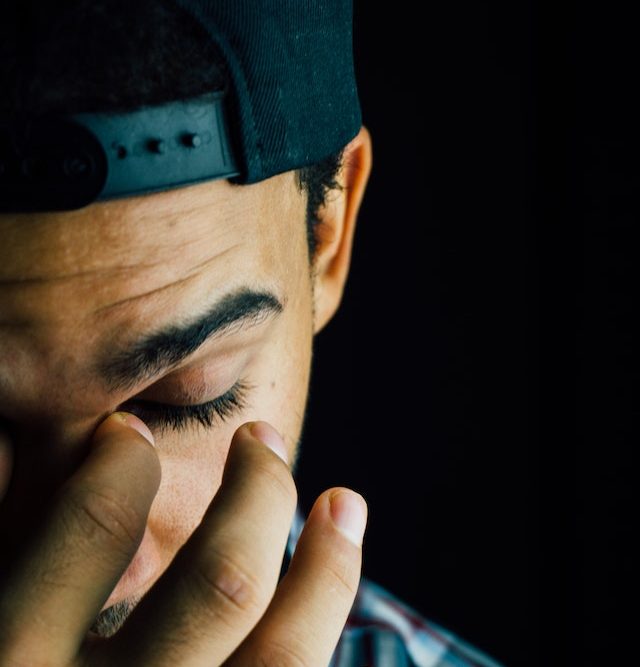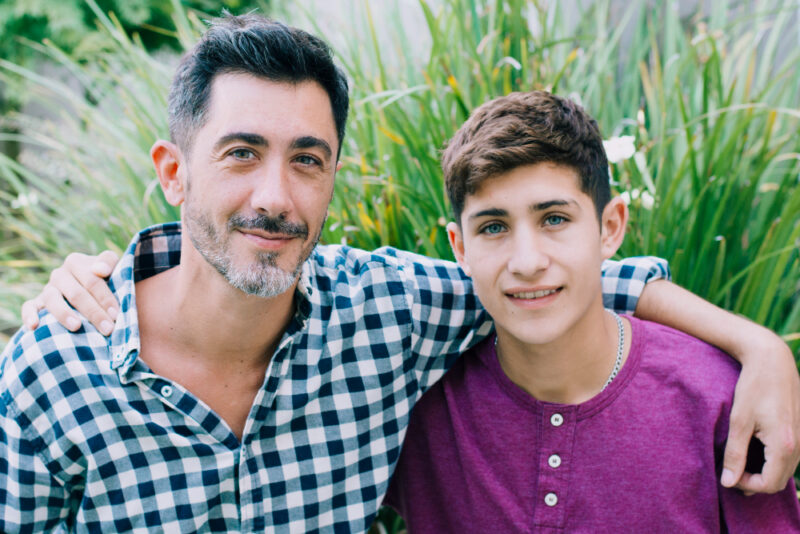
The teenage years are ripe with new experiences, opportunities and challenges. Also during this time, teenagers’ brains are changing, and they want more independence and autonomy. During this time, there are also many stressors. Read more >>
Request an Appointment
English: 650.688.3625
Medi-Cal: 650.688.3650

The teenage years are ripe with new experiences, opportunities and challenges. Also during this time, teenagers’ brains are changing, and they want more independence and autonomy. During this time, there are also many stressors. Read more >>

Helping Your Anxious Teen Cope with a Panic Attack
Anxious teens are vulnerable to experiencing a panic attack, which is a frightening experience, especially since it can occur out of the blue. Read more >>
Teens and Tweens: Use These Tips to Navigate Social Media in a Safe and Healthy Way
While social media can offer numerous benefits, it’s important to be aware of its potential downsides. From feelings of inadequacy stemming from comparisons to cyberbullying and information overload, the digital realm can present challenges to mental health. This guide aims Read more >>

Gen Z Mental Health: The Impact of Tech and Social Media
A McKinsey Health Institute (MHI) survey finds that Gen Z’s social media engagement can feel negative but can also help with finding mental health support and connectivity. Read more >>

The Truth About Teens, Social Media and the Mental Health Crisis
Back in 2017, psychologist Jean Twenge set off a firestorm in the field of psychology. Twenge warned of a mental health crisis on the horizon. Rates of depression, anxiety and loneliness were rising. And she had a hypothesis for the Read more >>

Tip Sheet on Social Media Use and Mental Health [downloadable]
This resource discusses the benefits of social media and provides tips on how to use social media in to support your mental health. Read more >>

Communicating With Your Teen—How to Approach Conversations With Empathy and Understanding
Establishing a connection with your teen is the basis for effectively supporting their mental well-being and social and emotional learning. When we love someone, we are interested in them and in their thoughts and feelings. As your child grows, communication Read more >>

A 2022 Pew Research Center study revealed that nearly 80% of 13-17 year-olds check at least one social media feed at least hourly, and over a third said they did so “almost constantly.” How can we develop healthy social media Read more >>

Tips for Healthy Social Media Use: For Parents and Teens
We all know how the algorithm works—the more you look at your phone, the more it will send compelling content to keep your eyes from looking away. It’s hard to break habits of checking TikTok or Instagram and constantly refreshing Read more >>

The Role Social Media Plays in Mental Health
If you’re spending an excessive amount of time on social media and feelings of sadness, dissatisfaction, frustration, or loneliness are impacting your life, it may be time to re-examine your online habits and find a healthier balance. Read more >>
English: 650.326.5530 | Español: 650.688.3650 | Fax: 650.688.3669
English: 650.326.5530
Español: 650.688.3650
Fax: 650.688.3669
English: 650.668.3625 | Español: 650.688.3650 | careteam@testing.chconline.org
English: 650.668.3625
Español: 650.688.3650
careteam@testing.chconline.org
© 2024 Children’s Health Council. All rights reserved.
CHC Palo Alto: 650 Clark Way, Palo Alto, CA 94304 | 650.326.5530
CHC South Bay: 2280 Kenwood Avenue, San Jose, CA 95128 | 408.831.7512
CHC Ravenswood: 1765 E Bayshore Rd, East Palo Alto, CA 94303 | 650.702.2487
CHC Palo Alto:
650 Clark Way, Palo Alto, CA 94304
650.326.5530
CHC South Bay:
2280 Kenwood Avenue, San Jose, CA 95128
408.831.7512
CHC Ravenswood:
1765 E Bayshore Rd, East Palo Alto, CA 94303
650.702.2487